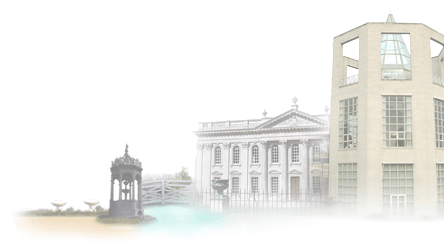A
Cambridge perspective
on the digital world



Whether it is simply getting to work on time, avoiding congestion, or dealing with the consequences of a terrorist attack, transport is one of the biggest problems people and businesses have to face in their daily lives.
Increasingly, transport systems are turning to technology for a solution – whether for congestion on the roads, information on the railways, or the best way to buy a travel ticket. Technology offers new solutions to problems that have resisted all previous attempts to solve them.
Road pricing has been in the news, since Transport Secretary Alistair Darling started a debate on the best way to pay for use of the roads. No-one likes to pay tax, but without it there would be no roads to travel on. Yet the way we pay for roads is under review. Fuel tax and vehicle excise duty could in future be wholly or partially replaced by a per-mile charge, calculated automatically by on-board units under the dashboard. Prices could be varied according to location, time of day or vehicle type, giving a direct incentive to motorists to avoid congested areas and times. Charging for congestion is the only solution that has been shown to halt the problem of ever-increasing traffic: however many new roads are built, traffic grows to fill the space available, and then some.
Whether, when and how this will be implemented is still to be decided. Yet technology has provided a new way of addressing what until now has been a totally intractable problem: how to prevent the country from groaning under an ever-expanding network of gridlocked M25s.
Several things have made possible the low cost airline - and thereby transformed the way the air industry operates. But one of the most important has been the ability to buy online. Analyse it, and this is quite a complex process. It involves not just paying for a ticket, but researching airline schedules and available seats, in real time. Crucially, it means comparing different offers: a dynamic market trade between buyers and sellers. For sellers, it means having the accurate real time information to set prices and make offers that will maximise the return on a highly perishable commodity. Travel seats have zero value after the event, and an unsold seat is income gone for ever.
The ability to buy online has created an opportunity for different types of marketing and offers, including late deals and dynamic pricing. This has fundamentally changed the air industry, and also the accommodation market. The full impact has yet to be felt on other forms of travel, but recent developments will change this.
There is one problem when buying over the Internet: it means sitting at a PC, and it takes several minutes to go through the process of form filling needed to buy online. And there is a second problem: PCs do not issue tickets.
For a century and more, paper tickets have been the normal accompaniment for every journey. But the process of ticketing is hugely complex and time consuming, typically eating up some 15% or more of the cost of the journey. Electronic ticketing aims to make this simpler and less costly, and eliminate the paper ticket, the biggest cause of complexity and expense. Existing schemes typically involves a smartcard such as the Oyster card.
But this technology, useful though it is, is already on its way to being superseded. A smartcard does not have a display, which limits its usefulness. The ultimate solution, for information, purchase and for ticketing involves a device we all now carry (or at least 85% of us do): the mobile phone. With far more memory and intelligence than a smart card, with a display and keyboard that works anywhere, and the ability to connect by wireless to travel systems of all kinds, the mobile phone is the ideal traveller's companion. Your mobile can be the source of everything you need for the journey, including information, booking, purchase and real time updates.
Making this work in practice has taken some time and effort. A long history of custom and practice has grown up around the use of paper tickets. An equivalent history - though much shorter - has developed for Internet purchase. The precise details of how to make mobile information, purchase and ticketing work in practice have only recently become clear, and they will change surface transport at least as much as the Internet has transformed air travel.
The success of modern transport systems, and the part they play in every aspect of work and life, has prompted attacks from those who want to undermine society – the most recent example being of course the London bombs.
Technology plays an essential part in responding to the threat of attacks, and making the whole transport network as safe as possible. For example:
Working in partnership with transport staff, security forces and members of the public, technology can play a huge part in making the transport network safe for all.
There is another technical solution to the problems of travel: avoid travelling when you don't need to. Although some things still require a face-to-face meeting, or physical presence at a particular place, others do not. The Internet provides a realistic alternative for many purposes; mobile phones, another. Broadband – both wired and wireless – will take this one stage further. New applications, including online access to data, make it easier to do what you need, wherever you are.
It is not a question of eliminating travel: now there is a choice. People and businesses are learning when travel is important, and when it is not. In the process, the old 9-to-5 journey to work and back is being replaced by more flexible travel arrangements, as people vary their travel plans day by day. A succession of oil scares and price hikes, and the realisation that energy reserves are, after all, finite, adds extra weight to the "don't travel when you don't need to" option.
In these and other ways, technology is changing the experience of travel, and the way it works.
Through our work with The Telematics Partnership (www.telematics-partnership.com) and others, we are developing new solutions for the basic problems of transport. Ever-increasing demands on the transport network have created new problems, and given old ones an extra bite. Connecting the latest technology is now helping to cut these problems down to size and make travel a manageable – and even a pleasant – experience again.
©2005 Mediation Technology
